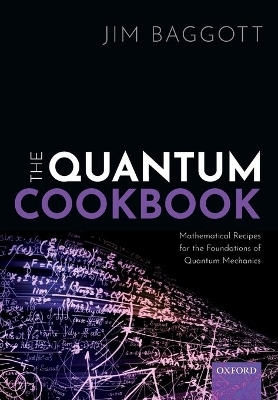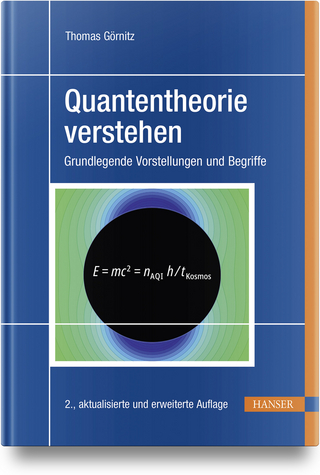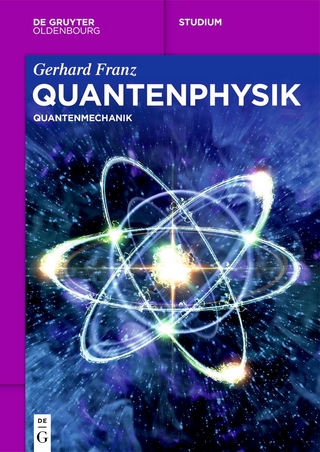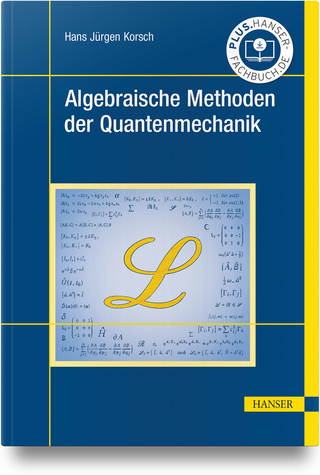
The Quantum Cookbook
Oxford University Press (Verlag)
978-0-19-882786-3 (ISBN)
Quantum mechanics is an extraordinarily successful scientific theory. But it is also completely mad. Although the theory quite obviously works, it leaves us chasing ghosts and phantoms; particles that are waves and waves that are particles; cats that are at once both alive and dead; lots of seemingly spooky goings-on; and a desperate desire to lie down quietly in a darkened room. The Quantum Cookbook explains why this is. It provides a unique bridge between popular exposition and formal textbook presentation, written for curious readers with some background in physics and sufficient mathematical capability. It aims not to teach readers how to do quantum mechanics but rather helps them to understand how to think about quantum mechanics. Each derivation is presented as a 'recipe' with listed ingredients, including standard results from the mathematician's toolkit, set out in a series of easy-to-follow steps. The recipes have been written sympathetically, for readers who - like the author - will often struggle to follow the logic of a derivation which misses out steps that are 'obvious', or which use techniques that readers are assumed to know.
Jim Baggott is an award-winning science writer. He trained as a scientist, completing a doctorate in chemical physics at the University of Oxford in the early 80s, before embarking on post-doctoral research studies at Oxford and at Stanford University in California. He gave up a tenured lectureship at the University of Reading after five years in order to gain experience in the commercial world. He worked for Shell International Petroleum for 11 years before leaving to establish his own business consultancy and training practice. He won the Royal Society of Chemistry's Marlow Medal for his contributions to scientific research in 1989.
1: Planck's Derivation of E = hn: The Quantisation of Energy
2: Einstein's Derivation of E = mc2: The Equivalence of Mass and Energy
3: Bohr's Derivation of the Rydberg Formula: Quantum Numbers and Quantum Jumps
4: De Broglie's Derivation of // = h/p: Wave-particle Duality
5: Schrödinger's Derivation of the Wave Equation: Quantisation as an Eigenvalue Problem
6: Born's Interpretation of the Wavefunction: Quantum Probability
7: Heisenberg, Bohr, Robertson, and the Uncertainty Principle : The Interpretation of Quantum Uncertainty
8: Heisenberg's Derivation of the Pauli Exclusion Principle: The Stability of Matter and the Periodic Table
9: Dirac's Derivation of the Relativistic Wave Equation: Electron Spin and Antimatter
10: Dirac, Von Neumann, and the Derivation of the Quantum Formalism: State Vectors in Hilbert Space
11: Von Neumann and the Problem of Quantum Measurement: The 'Collapse of the Wavefunction'
12: Einstein, Bohm, Bell, and the Derivation of Bell's Inequality: Entanglement and Quantum Non-locality
| Erscheinungsdatum | 25.02.2020 |
|---|---|
| Zusatzinfo | 39 illustrations |
| Verlagsort | Oxford |
| Sprache | englisch |
| Maße | 170 x 245 mm |
| Gewicht | 620 g |
| Themenwelt | Sachbuch/Ratgeber ► Natur / Technik |
| Naturwissenschaften ► Physik / Astronomie ► Quantenphysik | |
| ISBN-10 | 0-19-882786-5 / 0198827865 |
| ISBN-13 | 978-0-19-882786-3 / 9780198827863 |
| Zustand | Neuware |
| Informationen gemäß Produktsicherheitsverordnung (GPSR) | |
| Haben Sie eine Frage zum Produkt? |
aus dem Bereich


